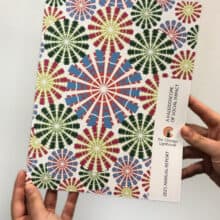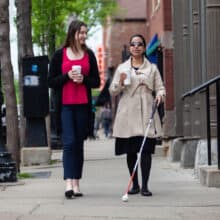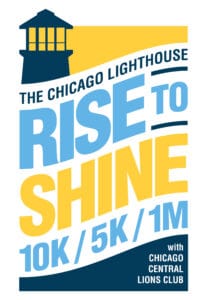Commentary: On Voting Accessibility
Early voting for the 2016 national and local elections is in full swing, and disability rights groups throughout the United States are advocating for more accessible polling places. Last week, a story on NPR discussed the many accessibility barriers voters with disabilities still face in the 21st century. From inaccessible ramps to a lack of knowledge from poll workers’ on operating accessible voting machines, the challenges we face are many. Last Saturday, I cast my vote, and although the process went smoothly, I could still identify myself with some of the accessibility issues discussed in this story.
“I would like an audio ballot,” I told the poll worker who checked me in. Theoretically, every polling place should have an accessible voting machine, and workers have received special training on setting it up. Much to my surprise, the worker did not seem taken aback by this request, although she had to ask someone for help. “You know how to set up the audio on the machine, right?” she asked a fellow worker. After waiting for five minutes, I became concerned. Other friends who are blind have gone to vote, only to find out that polling staff cannot start the accessible voting machine.
My mom was also voting that day, so I knew she would be able to read the ballot and cast my vote if need be after she was finished. She would just have to sign an Affidavit so she could accompany me into the booth. Fortunately, the poll worker was able to get the accessible machine to work after finding the special card required to start up the audio ballot. I was able to vote independently and privately by using a pair of headphones and a special handheld keypad to make my selections.
All of my voting experiences have been very similar thus far. Truth be told, I am always concerned even before going to vote. Each time, I worry that the workers will not be able to set up the accessible voting equipment, or that they will not even know what I am talking about. It’s not that I don’t want someone else to help me, but like anyone else, I want and deserve to be able to vote privately and independently. This is a right that those of us with disabilities have fought for for many years, and although laws like the ADA and Help America Vote Act guarantee equal access, simple and even unintentional barriers can prevent us from voting independently, or even getting to our polling place.
It is estimated that over 35 million of Americans with disabilities, or one-sixth of the electorate, are eligible to vote during this election. For this reason, it is crucial to have equal and full access in polling places across the country. Simple things like fixing broken doors or elevators can help those with mobility impairments get inside their local polling place. Educating poll workers about accessible voting machines will allow voters who are blind or visually impaired to vote independently and confidently. To me, there is something special about actually going to my polling place to cast my vote. Everyone deserves this basic right, and more should be done to give voters with disabilities equal access on Election Day.

Sandy Murillo works at The Chicago Lighthouse, an organization serving the blind and visually impaired. She is the author of Sandy’s View, a bi-weekly Lighthouse blog about blindness and low vision. The blog covers topics of interest to those living with blindness and vision impairments. Being a blind journalist and blogger herself, Sandy shares her unique perspective about ways to live and cope with vision loss.





